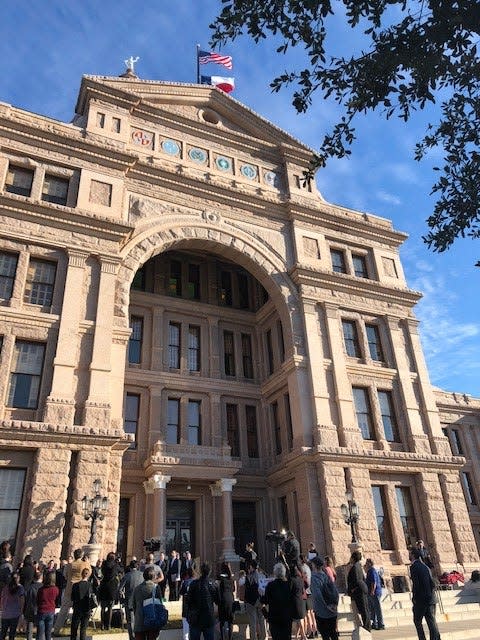Texas Lege can right a wrong and help fund medically fragile children with disabilities

Texas was one of the biggest beneficiaries of the American Rescue Plan Act (ARPA), receiving roughly $862 million dollars in Medicaid funding from the federal government in 2022 according to the Kaiser Family Foundation. The funds were earmarked to be spent as the state saw fit for Home and Community Based Services (HCBS). Unfortunately, state lawmakers chose not to fund additional nursing hours to support the thousands of medically fragile children throughout the state who need a private duty nurse (PDN) to stay alive in the comfort and dignity of their home.
PDN patients are typically children born with an acute medical condition or disability that requires around-the-clock medical care – care that can be provided in a sterile hospital room at an average of $2,902 a day according to Texas A&M, an institutional care setting at an average of $5,125 a day, or in their bedroom at home surrounded by family, loved ones and their designated nurse for an average of $750 a day.
Sadly, many Texas children with complex conditions who would benefit from PDN either do not receive enough care in the home or are unable to access services due in large part to the lack of funding. Texas has not increased reimbursement for these professions in nearly two decades. The Medicaid reimbursement rate for licensed practical nurses serving as PDNs in Texas is roughly $33 an hour compared to $48 to $66 in neighboring states, according to the rate schedules for Texas, Arizona, Nevada and New Mexico. The gaps are similar for registered nurses. For nurses in other settings, however, reimbursement has increased nearly 12% since 2019 and wages have exploded for contract nurses – increasing by more than 106%, according to a May 2022 report, The Financial Effects of Hospital Workforce Dislocation, published by industry analyst Kaufman Hall.
This disparity has forced many PDN nurses to seek employment in other states where Medicaid reimbursement ranges anywhere from 15% to 100% more than what Texas programs provide for caring for the same patients. This is why many health care providers, families and advocates joined in breathing a sigh of relief following the $862 million dollar ARPA infusion – a chance to recruit more nurses, get children out of hospitals, allow parents to return to work, and put Texas families back together.
So what happened?
These vulnerable patients were generally overlooked. The state had the opportunity to resubmit an ARPA funding request to the Centers for Medicare and Medicaid Services (CMS) to direct dollars to PDNs but due to the part-time nature of the Texas legislature, they would have needed to call a special session and ultimately decided against it. Thus, medically fragile patients did not receive the same levels of funding as other health care services – effectively leaving many children in the hospital for extended periods of time.
While this is a blemish on Texas’ already limited Medicaid program, the story doesn’t have to end here. We have a second chance to act to ensure medically fragile kids can access the in-home services they need to thrive.
To improve access to care and invest in our children, Texans can support the current legislative proposal to increase private duty nursing funding by 40% to make Texas competitive with other states. Appropriate increases and reasonable reimbursement rates will help ensure continued delivery of this critical service and promote better quality of life for Texas patients and their families.
If you live in Texas, you can write your house and senate representatives in support of this legislative need or support the initiative during the committee hearing in the State Capitol at 9 a.m. on Tuesday, Feb. 21.
Veronica Charles, MPA, is Senior Director of Federal and Government Affairs for Maxim Healthcare Services, a home health care, personal care and behavioral care provider serving families with eight locations across Texas.
This article originally appeared on Corpus Christi Caller Times: Texas Lege can help fund medically fragile children with disabilities
